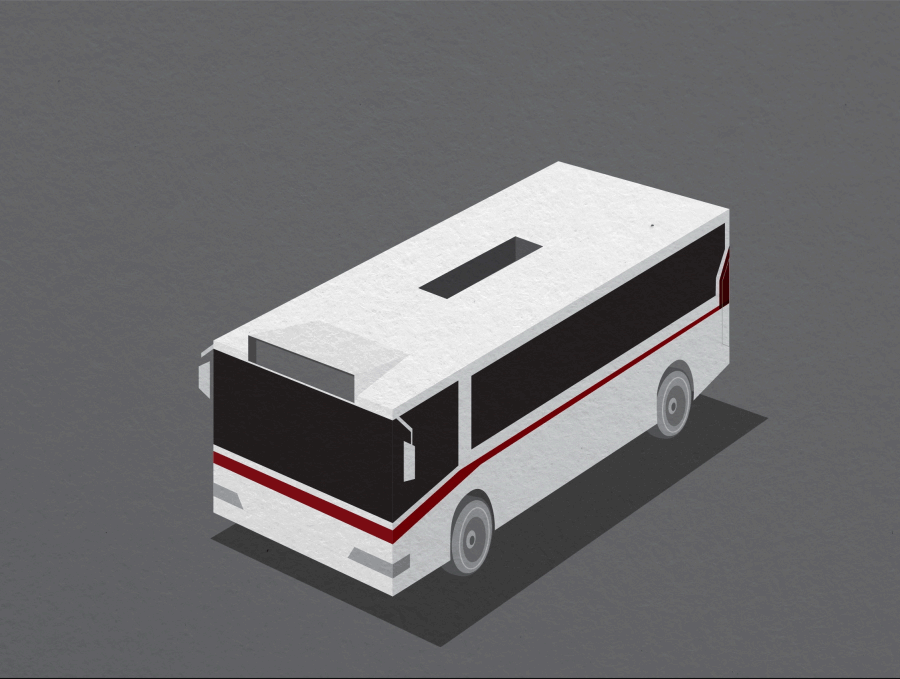A new survey commissioned by Ford Motor Company showed a wide range of perceptions about the state of commuting in Asia Pacific. According to report, 42-percent of respondents in the PH said their experience in commuting was worse than a year ago, with 3 out of 10 responded as the “worst part of their day.”
The 2 most common reasons cited for the decline in quality: traffic congestion and increasingly crowded public transportation.

Aside from the PH, Vietnamese respondents were the most likely to say their commute had improved over the last year, followed by commuters in India and Indonesia. The three countries also topped the podium for the most people who said they like their commute. In Taiwan and South Korea, more than half of respondents reported no change in the quality of their commute.
John Larsen, Director of Ford Smart Mobility in Ford Asia Pacific, said, “Everywhere in the world, people face unique transportation issues that are local in nature, and the results of this survey echoed that reality. These challenges are what motivates Ford Smart Mobility, which aims to tackle global issues and provide local solutions that make a daily difference to people all over the world.”
Ford Smart Mobility is the company’s plan to be a leader in connectivity, mobility, autonomous vehicles, the customer experience, and data and analytics. This includes everything from Ford’s in-car connectivity solution, SYNC, to the 30 global mobility experiments that have already been undertaken to gain insight into changing consumer transportation habits and preferences.
Increased of Traffic and Rising Costs of Commute
The survey shows majority of Filipino commuters are highly dissatisfied with the outlook of their commute due to the time they labor and spend in traffic.

Meanwhile, 37- percent said the quality of their commute had remained unchanged, but 21-percent reported that their commute had improved over the last year. Of the optimists, the most common reason cited was an improvement in public transportation, and the perception that services are less crowded, more comfortable and more convenient.
For those lamenting the declining quality of their commute, respondents cited the following reasons:
- More traffic congestion: 36-percent
- Public transportation is more crowded, uncomfortable and inconvenient: 23-percent
- More expensive: 12-percent
- More difficult to find a parking spot: 9-percent
On the survey, responded said that their commute was the worst part of their day (30-percent). The remaining 43-percent reported that they simply find their commute inconvenient. Filipino commuters also overwhelmingly said their commutes are getting more expensive (60-percent), with only 16-percent reporting declining costs. Twenty-three percent said costs had remained the same over the last year.
Price increases for public transportation and toll roads came out on top for the most commonly cited reason for the increased cost of commuting, at 42-percent. Fuel prices rankled Filipino commuters as well, with 28-percent them as a reason for the rise in costs. Personal mobility choices also played a role: Some said using taxis, taxi-hailing apps, and car sharing services over cheaper options was a factor for the change (12-percent, 9-percent and 9-percent, respectively).
Joseph Ayllon, Assistant Vice President for Communications of Ford Philippines, said, “As the Philippine economy continues to thrive and the people remain to be one of the world’s most confident consumers, challenges like these are bound to happen. Ford recognizes these issues and we are doing what we can to address them through ways that are not only convenient, but also smart.”
Driving Change with “Ford Smart Mobility”
Explosive population growth, expanding middle class, air quality and public health concerns, and changing customer attitudes and priorities are the four driving forces behind Ford Smart Mobility. Ford Smart Mobility includes technologies already available in Ford vehicles worldwide, and long-term research projects including autonomous vehicles, flexible ownership and car-sharing models, and wearable technologies.
Ford has been a leader in in-car connectivity since it introduced the first generation of SYNC in 2007, which remains the most popular entertainment and communications system in the automotive industry. Coupled with SYNC AppLink, which enables drivers to control smartphone apps via voice controls, Ford vehicles help drivers stay connected to their world more than ever before – all while keeping their hands on the wheel and eyes on the road.
Beyond in-car connectivity, Ford has the largest fleet of autonomous vehicles of any automaker, and is testing the technology across different climates in the United States, including recent industry-first tests in snowy conditions. Ford will also triple its engineering investment in its driver assist and semi-autonomous technologies over the next five years. Many of these technologies are already available in Ford vehicles, including Adaptive Cruise Control, Active Park Assist, Lane-Departure Warning and Lane-Keeping Aid, and Blind Spot Information System.
“Ford Smart Mobility is about ensuring the freedom of mobility for people all over the world,” said Larsen. “That means thinking about the needs of tomorrow, and working to make a smarter, more efficient future a reality for everyone.”

